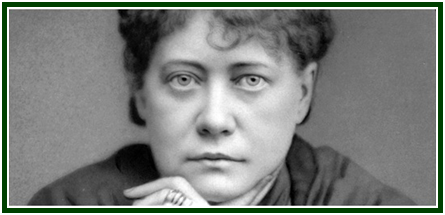A Chapter from Gibran’s Book “The Madman”
Kahlil Gibran

0000000000000000000000000000000000000000
Editorial Note:
The present text is an example of
the fact
that the works of Kahlil
Gibran (1883-1931)
have essential points in common with Theosophy.
“The Seven Selves” can be seen from
at least three
different points of view. First, it examines the
diversity of levels of
consciousness in human beings.
Second, it describes Life in its
relation to Dukkha,
or Suffering, the first noble truth
taught by Lord
Buddha. Finally, it can be read as a poem on Maya,
Illusion. We reproduce “The Seven
Selves” from
“Kahlil Gibran - Prophet,
Madman, Wanderer”,
Penguin Books, London, UK, 58 pp.,
see pp. 40-42.
(Carlos Cardoso Aveline)
000000000000000000000000000000000000000000000000
In
the silent hour of the night, as I lay half asleep, my seven selves sat
together and thus conversed in whispers:
First Self:
Here,
in this madman, I have dwelt all these years, with naught to do but renew his
pain by day and recreate his sorrow by night. I can bear my fate no longer, and
now I must rebel.
Second Self:
Yours
is a better lot than mine, brother, for it is given me to be this madman’s
joyous self. I laugh his laughter and sing his happy hours, and with thrice
winged feet I dance his brighter thoughts. It is I that would rebel against my
weary existence.
Third Self:
And
what of me, the love-ridden self, the flaming brand of wild passion and
fantastic desires? It is I the love-sick self who would rebel against this
madman.
Fourth Self:
I,
amongst you all, am the most miserable, for naught was given me but the odious
hatred and destructive loathing. It is I, the tempest-like self, the one born
in the black caves of Hell, who would protest against serving this madman.
Fifth Self:
Nay,
it is I, the thinking self, the fanciful self, the self of hunger and thirst,
the one doomed to wander without rest in search of unknown things and things
not yet created; it is I, not you, who would rebel.
Sixth Self:
And
I, the working self, the pitiful labourer, who, with patient hands, and longing
eyes, fashion the days into images and give the formless elements new and
eternal forms - it is I, the solitary one, who would rebel against this
restless madman.
Seventh Self:
How
strange that you all would rebel against this man, because each and every one
of you has a preordained fate to fulfil. Ah! could I but be like one of you, a
self with a determined lot! But I have none, I am the do-nothing self, the one
who sits in the dumb, empty nowhere and nowhen, when you are busy re-creating
life. Is it you or I, neighbours, who should rebel?
When
the seventh self thus spake the other six selves looked with pity upon him but
said nothing more; and as the night grew deeper one after the other went to
sleep enfolded with a new and happy submission.
But
the seventh self remained watching and gazing at nothingness, which is behind
all things.
000
The article “The Seven Selves” is available on the websites of the Independent Lodge of Theosophists since 19 February 2017.
000
Read more:
000

Helena Blavatsky (photo) wrote these words: “Deserve, then desire”.
000
